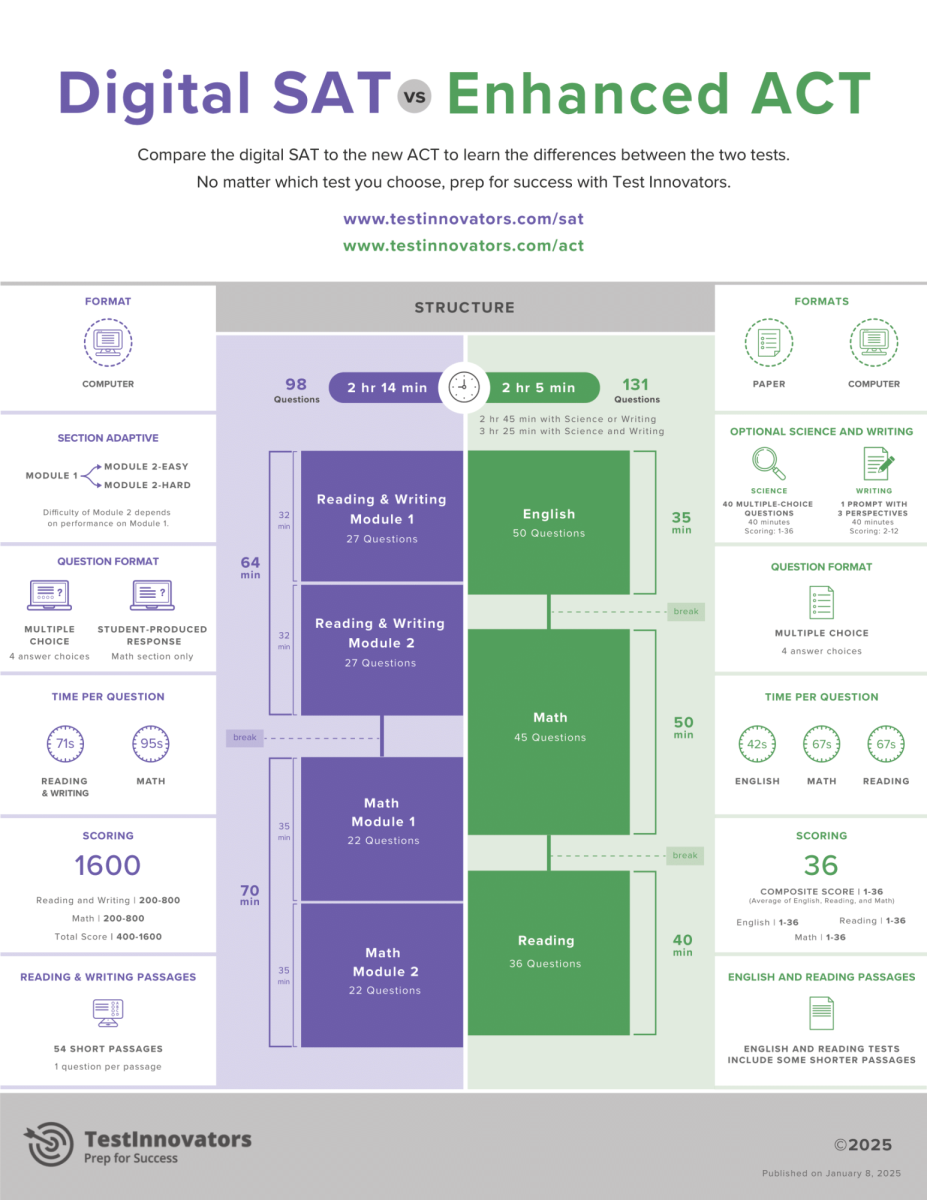As students prepare for college admission, one of the major decisions they have to make is whether to take the SAT or the ACT. Both are standardized tests used to assess college readiness, but their format and content differ. While some students may have a clear preference, others may choose to take both to determine which test suits them best.
“I recommend trying it maybe the summer after your sophomore year, working on it over the summer, and then taking it a couple of times your junior year,” said Lisa Wood, college career assistant. “Most colleges don’t require it, but some schools are starting to bring back SAT and ACT requirements.”
One of the big differences between the two tests is that the ACT includes a science section, making it a great option for students who are strong in science. In addition, the ACT’s sections seem to appeal to students because they tend to be shorter than the SAT.
“The ACT felt more fast-paced compared to the SAT. On the ACT, I could quickly identify the question,” said senior Angelina Huynh. “But with the SAT, I’d often have to cross-reference multiple lines of text or go back to the question multiple times to understand it.”
On the other hand, the SAT is primarily focused on math and verbal skills.
“The SAT is fully digital now, which is a shift from the paper format, and it’s offered more frequently, so students can take it multiple times,” said Wood.
Another key difference is the level of math required.
“The technical skill level for math is higher on the ACT,” said Huynh. “For example, the ACT covers more geometry, whereas the SAT focuses more on Algebra 1. Also, you have to memorize math formulas for the ACT.”
Regional differences also affect the decision on which test to choose. According to collegeraptor.com, some states, such as Wisconsin, are heavily ACT-oriented, with over 95% of students choosing the ACT. In contrast, fewer than 10% of students in New Jersey choose to take the ACT. This might be something for students to consider when applying to schools in different regions, although colleges do not have a preference for one test over the other.
In terms of test preparation, practice is key for both exams.
“There are lots of practice opportunities online for both the SAT and ACT, so I highly recommend practicing before you go in,” said Wood. “You can also request feedback on your test performance after you take the SAT to see exactly what areas you need to improve.”
Another way to prepare for the exam is to practice vocabulary and enhance your annotation skills.
“Try to find trends in the questions you get wrong and focus on practicing those. Knowing the connotation of words is important too,” Huynh said. “Experiment with annotation methods and try to find one you like. Although annotations aren’t necessary, they may be helpful to save time.”
For students unsure which test to take, fairtest.org can be a helpful resource. The website provides information on which schools require SAT or ACT scores and how to compare the scores between the two tests.
“For example, if you get a 31 on the ACT, you can check what that equates to on the SAT,” said Wood. “This can help you decide which test might better suit your strengths.”
Understanding the differences between the SAT and ACT can help students make an informed decision when planning for college admissions.































